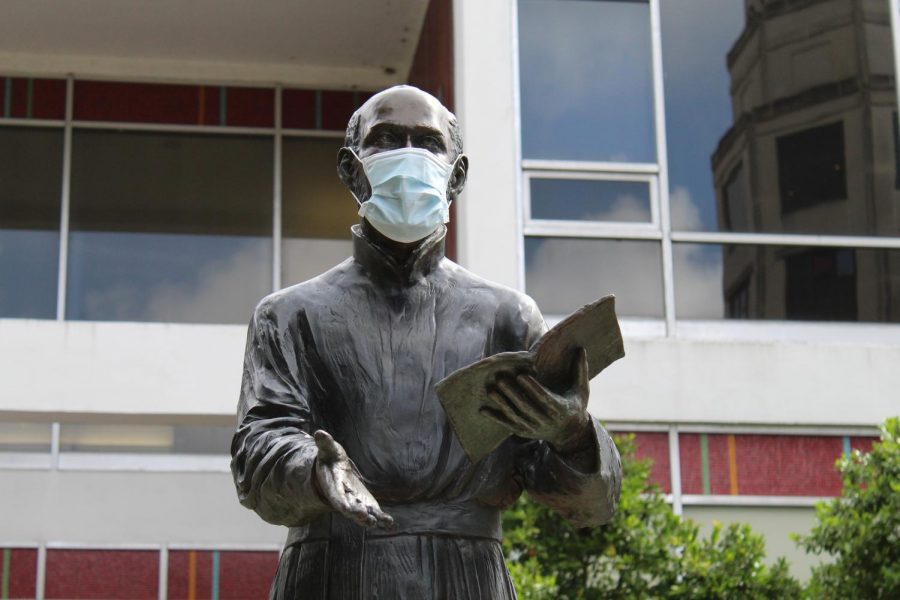Loyola publishes Mission Priority Examen report and goals
October 15, 2020
Loyola’s Office of Mission and Identity announced Oct. 13 that its Mission Priority Examen was endorsed and the university’s Jesuit Catholic identity was reaffirmed.
The endorsement came from Fr. Arturo Sosa, the Superior General of the Society of Jesus from the international headquarters in Rome.
The Mission Priority Examen is a reflective self-study of Loyola’s Jesuit Catholic mission. This year’s examen centered around why Loyola will continue being a Jesuit Catholic school and what goals it will prioritize in the next few years.
Loyola’s four main priorities were chosen after a nine month reflective process by the MPE Steering Committee. This process included input from various students, faculty, staff, alumni and trustees. These priorities are Ignatian formation, equality diversity and inclusion, mission intensive high impact learning and cura apostolica, care for the work in Latin.
According to the 2020 examen, Loyola has formed strategic initiatives to “(invest) in Ignatian Formation at every level of Loyola to provide all stakeholder groups with developmentally appropriate opportunities for professional and personal development grounded in the Spiritual Exercises.”
The examen also states that to accomplish its priority of equity, diversity and inclusion, the school will focus on accessibility and organizational changes. Due to the wide range of religious diversity in the student body, the university also pledged to ensure that the chapel and other sacred spaces on campus are usable for non-Catholic students to worship in.
Plans are in the works to design more short-term immersion programs as well as study-abroad opportunities that will allow students to carry out the university’s mission of reconciliation and justice, according to the examen. Investments have also been made to help students engage in mission intensive activities in service to the local community and Church.
To guarantee “care for the work,” the examen suggested introducing competitive salaries, benefits, and other opportunities for staff and faculty to ensure ongoing professional development.
These changes were made after an examination of Loyola’s strengths, gaps and emerging interests to strengthen Loyola’s Jesuit Catholic character.







